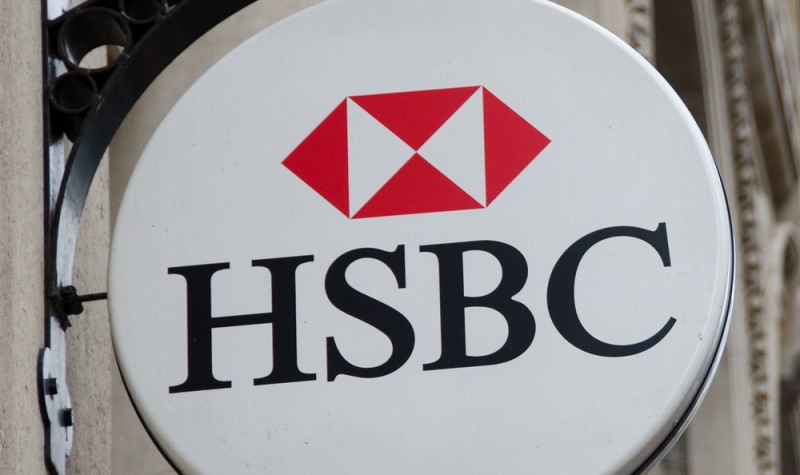HSBC: A Brexit Beneficiary?

HSBC (HSBA) at 492p: investors can now buy HSBC shares at half the price they were seven or eight years ago on a valuation which is a 33 per cent discount to net assets and on a dividend yield of over 7 per cent. That seems to discount a lot and leave room for long-term appreciation.
A little history…
In the wake of the June referendum it gives me some pleasure to note that the share price has risen 8 per cent since I reviewed and recommended the equity some four months ago, after the annual results, at 456p.
Naturally, I did not foresee the British electorate voting to leave the biggest and most prosperous trading bloc on the Globe – something I am happy to say that gives me a common bond with the great George Soros, who, no doubt on that basis, failed to short the pound as he once famously did under a former Conservative Government. It is fascinating to note that David Cameron’s career included two devaluations of the pound. One thinks of the Lady Bracknell’s strictures against carelessness.
My recommendation in February was made on the basis that I deduced it likely that the company would maintain its annual 2015 dividend payout of 51 cents this year. This was despite the fact that the then annual dividend yield was on a traditional dividend cut warning level of 7.48 per cent.
Had the British voted on rational material and economic grounds to stay in Europe, it would no doubt be a bit of a different story with the pound having moved higher against an overvalued dollar – further evidence that a diversified portfolio always helps to lower risk.
On Brexit Day on 23rd June, the HSBC share price was about 5 per cent lower than the market share price at the beginning of the year. On the other hand, Lloyds Bank had risen by some 12 per cent over that same period. From that point, quite logically, the Lloyds bank share price headed south and the HSBC share priced headed north from around 440p to the current 494p last seen.
Where to from here?
From the perspective of the UK investor the devaluation of sterling – particularly the significant one just experienced by the pound (the 30 per cent devaluation against the Japanese Yen tells you all you need to know about the nature of international hot money and the perceived financial credibility of sterling) – looks to be a good thing. The caveat is the extent to which the UK’s anticipated departure from the EU safe harbour manages to undermine global economic confidence in a volatile world.
Will it undermine confidence in EU banks, which are not as well capitalized as they should be at this stage, bringing systemic contagion to even the better capitalised ones? Will it impact China and America’s economic recovery by reducing confidence? That is important to HSBC, not merely because it is a bank, but also because it is a bank with a large involvement in the future of China and South East Asia Pacific and has a stake in the US economic recovery. It is operationally dependent on confidence and progress in the US, China and of course the UK from which it recently drew around one quarter of its Group net profit.
Devaluation of the pound against the US dollar is all very well as a short-term bonus for earnings, but it is no substitute operationally for rising economic activity and normal yield curves; that is to say with short-term interest rates low and rising as repayment periods lengthen to compensate for inflation. That is where banks make their best profit margins on an annual basis in the ongoing short-term stock market. Having said all of that there are four good reasons for thinking that these shares are dirt cheap on a long-term perspective.
Four long term bullish signs…
First, the shares at 490p last seen are more than half the price they were prior to the great banking crash, when they reached about £10 a share. The great Asian banking opportunity has come and gone. It may be true that shares which go down do not always rise again but it is also true that HSBC has an enormous business in the Far East.
Second, the share’s current rating reflects the historic low level of interest rates and the deeply distorted yield curve which will alter in time.
Third, the shares are cheap on the ‘fundamentalist’s’ price to book yardstick of enterprise value. These shares are reportedly on a 30 per cent discount to book value. In other words, an investor now pays 490p (last seen) for net assets worth at the last balance sheet an estimated 647p, putting the shares on a discount to assets of about a third. That is one measure of the extent to which these shares are not getting anything like a proper return on equity.
Fourthly, the wind that blows a message via Mr Hammond about a possible no tariff trade pact with the freedom loving People’s Republic of China may mean the final snuffing out of manufacturing in the UK in exchange for HSBC and other UK service providers doing more business in China. It is on the cards that Brexit may favour HSBC in particular.
Comments (0)